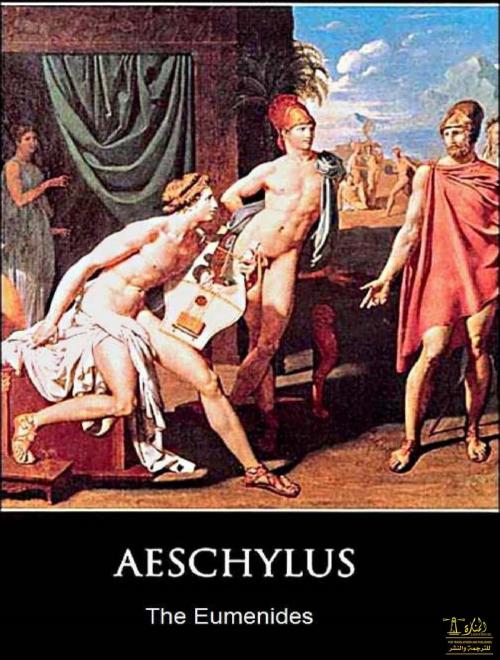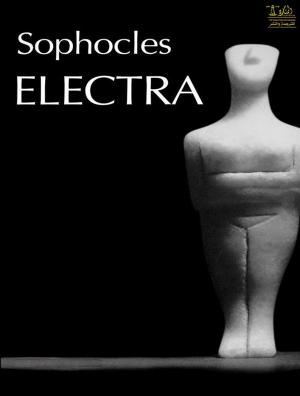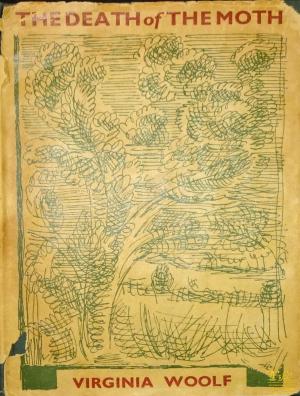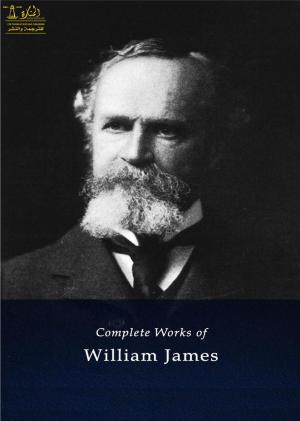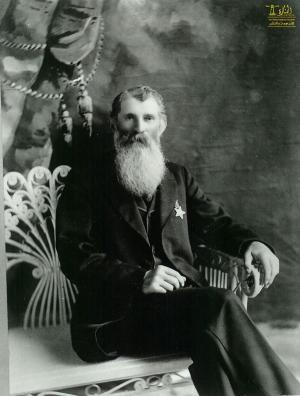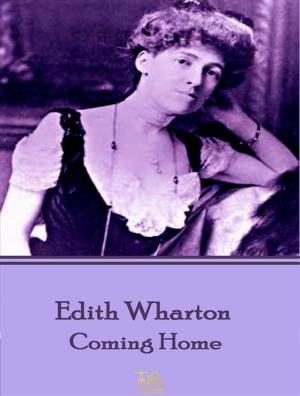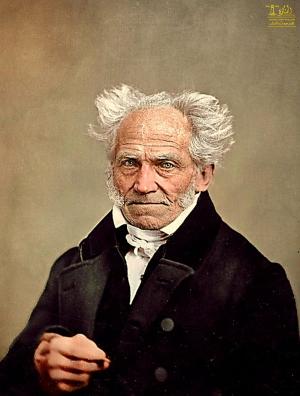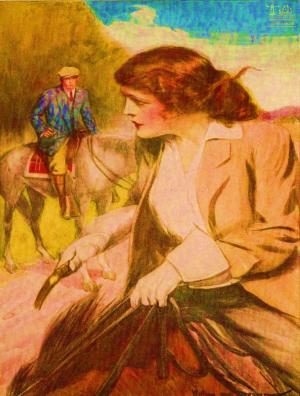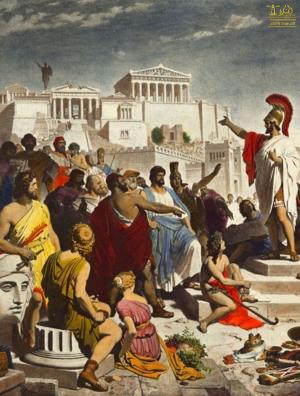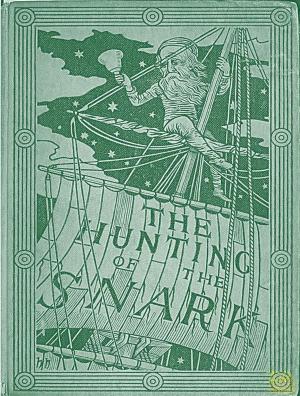| Author: | Aeschylus | ISBN: | 9780599447073 |
| Publisher: | Lighthouse Books for Translation Publishing | Publication: | May 4, 2019 |
| Imprint: | Lighthouse Books for Translation and Publishing | Language: | English |
| Author: | Aeschylus |
| ISBN: | 9780599447073 |
| Publisher: | Lighthouse Books for Translation Publishing |
| Publication: | May 4, 2019 |
| Imprint: | Lighthouse Books for Translation and Publishing |
| Language: | English |
The Eumenides” (“The Kindly Ones” or "The Gracious Ones") is the third of the three linked tragedies which make up “The Oresteia” trilogy by the ancient Greek playwright Aeschylus, preceded by “Agamemnon” and “The Libation Bearers”. The trilogy as a whole, originally performed at the annual Dionysia festival in Athens in 458 BCE, where it won first prize, is considered to be Aeschylus’ last authenticated, and also his greatest, work. “The Eumenides” tells of how Orestes is pursued to Athens by the vengeful Erinyes for the murder of his mother, Clytemnestra, and how he is tried before Athena and a jury of Athenians to decide whether his crime justifies the torment of the Erinyes.
Aeschylus was born at the religious center of Eleusis. His father, Euphorion, was of a noble Athenian family. In 499 B.C. Aeschylus produced his first tragedy, and in 490 he is reputed to have taken part in the Battle of Marathon, in which the Athenians defeated the Persian invaders.
In 484 Aeschylus won first prize in tragedy in the annual competitions held in Athens. In 472 he took first prize with a tetralogy, three tragedies with a connecting theme and a comic satyr play. It embraced Phineus, The Persians, Glaucus of Potniae, and the satyr play Prometheus, the Fire Kindler. Defeated in one dramatic competition by Sophocles in 468, Aeschylus later won first prize with another tetralogy: Laius, Oedipus, The Seven against Thebes, and the satyr play The Sphinx. In 463 he won first prize with the tetralogy now known as The Suppliants, The Egyptians, The Danaids, and the satyr play The Amymone. In 458 he gained his last victory with the trilogy Oresteia. The date of another trilogy, the Prometheia, is unknown, but it was probably produced sometime between The Seven against Thebesand the Oresteia. Only 7 of the perhaps 90 plays that Aeschylus wrote are preserved. Aeschylus was acquainted with the Greek poet lon of Chios, and he may also have known Pindar, Greece's greatest lyric poet. Aeschylus's son and the descendants of Aeschylus's sister also wrote tragedies. The legend that Aeschylus stood trial for divulging the Eleusinian Mysteries but was acquitted on the grounds that he was never initiated may be simply a reflection of his religious environment. He was greatly influenced by the poet Homer, describing his own works as "slices of Homer."
Reminiscences Although little more is known or verifiable about Aeschylus's personal life, some reminiscences of Aeschylus have survived. Ion of Chios, a younger tragedian, recorded in his Visits that he watched a boxing match at the Isthmian Games with Aeschylus, and that one boxer received a terrible blow that made the crowd roar. “You see the importance of practice,” said Aeschylus, nudging him. “The one who was hit is silent, but the spectators cry out.” Ion may also be the source for Aeschylus's comment that his plays were “slices of fish
The Eumenides” (“The Kindly Ones” or "The Gracious Ones") is the third of the three linked tragedies which make up “The Oresteia” trilogy by the ancient Greek playwright Aeschylus, preceded by “Agamemnon” and “The Libation Bearers”. The trilogy as a whole, originally performed at the annual Dionysia festival in Athens in 458 BCE, where it won first prize, is considered to be Aeschylus’ last authenticated, and also his greatest, work. “The Eumenides” tells of how Orestes is pursued to Athens by the vengeful Erinyes for the murder of his mother, Clytemnestra, and how he is tried before Athena and a jury of Athenians to decide whether his crime justifies the torment of the Erinyes.
Aeschylus was born at the religious center of Eleusis. His father, Euphorion, was of a noble Athenian family. In 499 B.C. Aeschylus produced his first tragedy, and in 490 he is reputed to have taken part in the Battle of Marathon, in which the Athenians defeated the Persian invaders.
In 484 Aeschylus won first prize in tragedy in the annual competitions held in Athens. In 472 he took first prize with a tetralogy, three tragedies with a connecting theme and a comic satyr play. It embraced Phineus, The Persians, Glaucus of Potniae, and the satyr play Prometheus, the Fire Kindler. Defeated in one dramatic competition by Sophocles in 468, Aeschylus later won first prize with another tetralogy: Laius, Oedipus, The Seven against Thebes, and the satyr play The Sphinx. In 463 he won first prize with the tetralogy now known as The Suppliants, The Egyptians, The Danaids, and the satyr play The Amymone. In 458 he gained his last victory with the trilogy Oresteia. The date of another trilogy, the Prometheia, is unknown, but it was probably produced sometime between The Seven against Thebesand the Oresteia. Only 7 of the perhaps 90 plays that Aeschylus wrote are preserved. Aeschylus was acquainted with the Greek poet lon of Chios, and he may also have known Pindar, Greece's greatest lyric poet. Aeschylus's son and the descendants of Aeschylus's sister also wrote tragedies. The legend that Aeschylus stood trial for divulging the Eleusinian Mysteries but was acquitted on the grounds that he was never initiated may be simply a reflection of his religious environment. He was greatly influenced by the poet Homer, describing his own works as "slices of Homer."
Reminiscences Although little more is known or verifiable about Aeschylus's personal life, some reminiscences of Aeschylus have survived. Ion of Chios, a younger tragedian, recorded in his Visits that he watched a boxing match at the Isthmian Games with Aeschylus, and that one boxer received a terrible blow that made the crowd roar. “You see the importance of practice,” said Aeschylus, nudging him. “The one who was hit is silent, but the spectators cry out.” Ion may also be the source for Aeschylus's comment that his plays were “slices of fish
